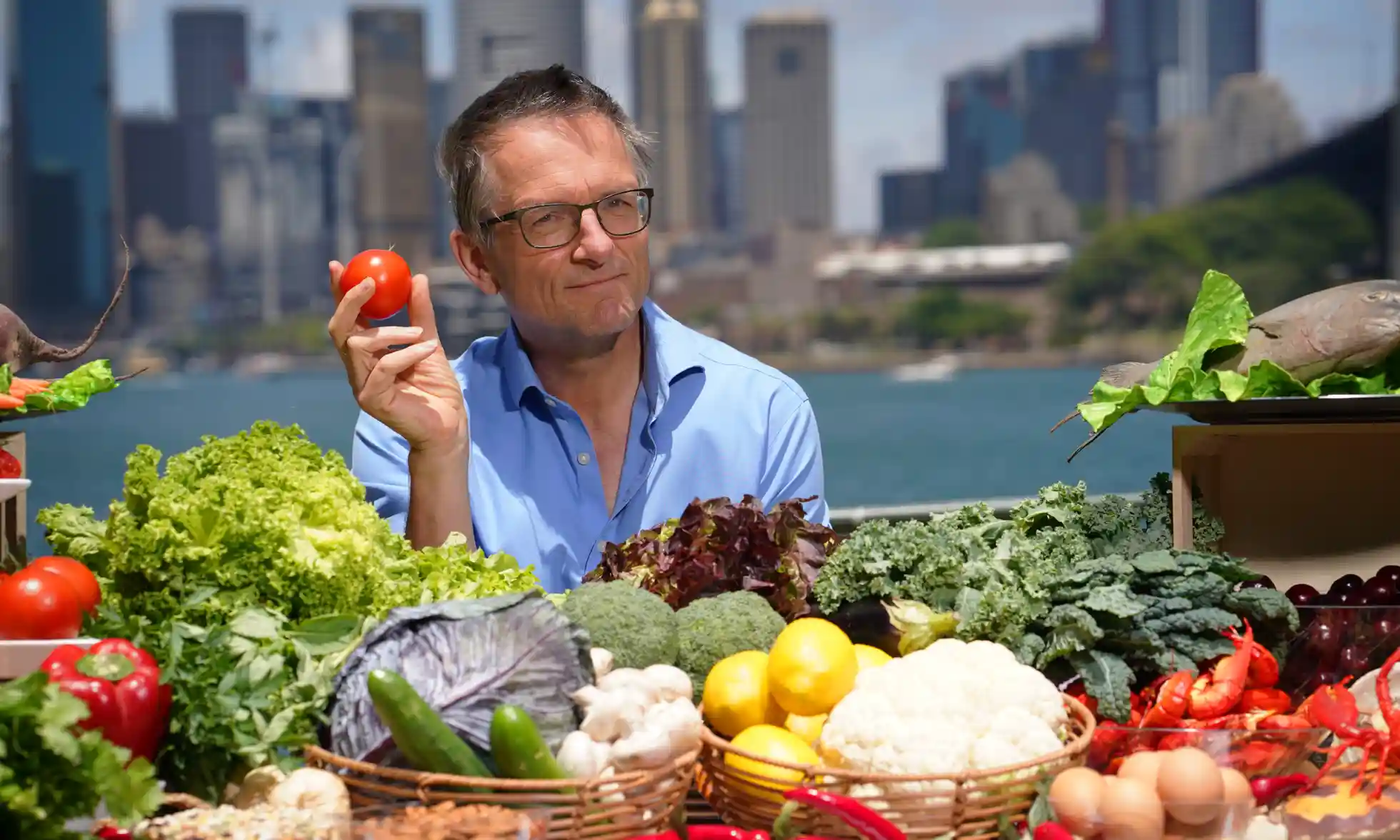It was about tackling type 2 diabetes Down Under, but even if you’re never at risk of the disease this program contained valuable insights.
Mosley’s a familiar face from his BBC shows on health. He’s also written a stash of books and might be best known for developing the 5:2 diet.
This time he teamed up with exercise physiologist Ray Kelly whose mission is to reduce diabetes in Indigenous communities.
The reason for the focus on type 2 diabetes was two-fold. First, it’s a huge problem in this country and around the world. More than a million Australians have diabetes and at least another half a million have it but don’t know it yet. It costs us more than $20 billion a year. Yes, billion.
But second, it’s also personal for Mosley. His father died from diabetes at age 74, and in 2012 Mosley himself was diagnosed with it. He lost 9kgs and turned it around, and this three-part series was about helping others do the same. Or at least, leading them down the right path.
Eight people with diabetes or pre-diabetes were followed for eight weeks as they tried to do what he’d done. They represented a range of cultures hit hard by the disease, including Indigenous Australia, the Pacific Islands and India.
What was interesting was that Mosley and Kelly concentrated on more than just getting individuals to increase their physical activity and stop over-eating carbohydrate.
That’s fundamental, but they also took aim at Diabetes Australia and Dietitians Australia, two bodies we might expect to be doing everything possible to stem the spread of diabetes, but aren’t.
Nowhere on the Diabetes Australia website was there any recognition that the disease can be reversed. Moreover, it apparently claimed that the cause of diabetes was unknown. Which, of course, is rubbish.
Mosley told us he’d convinced the organisation to update their information. Disappointingly, I can’t see where that’s occurred. It still seems outdated, confusing and wishy-washy.
If you want to understand how to lose weight, improve your health and reduce your risk of chronic disease, skip that website and chase up this series on SBS On Demand.
Diabetes Australia recommends the Australian Dietary Guidelines as a good starting point for health advice. Therein lies a problem.
One of the most important messages from the Mosley series was that foods such as rice, cereal, bread, low-fat (often flavoured) yoghurts and sweet fruit are OK if you’re young and fit.
But it’s been a while since the Australian population looked like that. Most of us are older, heavier and more at risk of chronic disease.
Those foods are not OK for us, certainly not as a mainstay. They’re exactly what will skyrocket our insulin and increase the fat around our organs.
Yet, that’s what the Dietary Guidelines have encouraged for a long time.
Is it any wonder this gets confusing?
Another of Mosely’s targets was politicians because he’s keen to see more action from them. If we could reduce smoking with a tobacco tax, he argues, we could encourage healthier diets with a sugar tax.
He set up a tent opposite Parliament House in Canberra and enticed a handful of senators and MPs to venture into it for a range of tests — blood sugar, blood pressure, weight, waist circumference and liver health.
Thirty-eight-year-old South Australian MP James Stevens discovered he had high blood pressure and fatty liver disease. People with a fatty liver have a three times greater risk of diabetes.
The likely reason for James’s liver problem? Cereal for breakfast, and foods such as rice and pasta for lunch and dinner. Too many carbs.
Mike Freelander from Western Sydney was a paediatrician for many years before becoming an MP, and he’s familiar with diabetes in children. But he had a big waist and his blood sugar test showed he was pre-diabetic. At 68, he’s a candidate for diabetes or cardiovascular disease unless he deals with it.
During the series Mosley used himself as a guinea-pig and took on eating a ‘typical Australian diet’ with plenty of processed food. Just over two weeks later he was 3kgs heavier, his waist was 3cms bigger and his blood sugar was dangerously high.
Of course, he also reversed it. While some of the eight participants managed to do the same, some struggled.
Ultimately the message was about eating real food, cooking from scratch and moving away from high-carb and processed foods. If it comes in a packet, think twice.
Mosley’s message is that if we do this and build physical activity into our lives, we can reverse diabetes.
Better still, we can avoid it — and a lot of other diseases — in the first place.
Photo Source: the guardian.com

